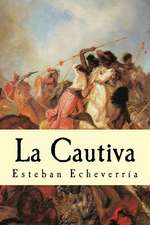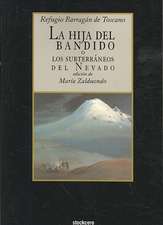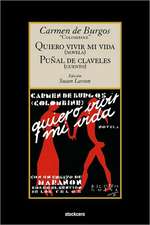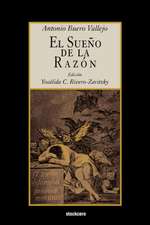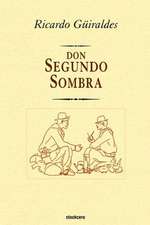El Matadero (y Apologia del Matambre)
Autor Esteban Echeverriaes Limba Spaniolă Paperback – 31 mai 2004
Preț: 84.45 lei
Nou
Puncte Express: 127
Preț estimativ în valută:
16.16€ • 16.88$ • 13.40£
16.16€ • 16.88$ • 13.40£
Carte tipărită la comandă
Livrare economică 11-25 februarie 25
Preluare comenzi: 021 569.72.76
Specificații
ISBN-13: 9789871136094
ISBN-10: 9871136099
Pagini: 56
Dimensiuni: 152 x 229 x 3 mm
Greutate: 0.1 kg
Editura: Stockcero
Locul publicării:Argentina
ISBN-10: 9871136099
Pagini: 56
Dimensiuni: 152 x 229 x 3 mm
Greutate: 0.1 kg
Editura: Stockcero
Locul publicării:Argentina
Notă biografică
1805 - 1851
Argentine writer belonging to the influential generation of '37.
He began his studies at the College of Moral Sciences; abandoning them at the end of 1823, despite having been an applied student.
In 1824 he traveled to Europe to complete his education.
In Paris (1825-1830) he follows the most varied courses, becomes familiar with the literary and ideological trends in vogue, forms a solid encyclopedic culture and assimilates countless works in French and English. With that important baggage he returns to Buenos Aires.
He introduces literary romanticism in Plata, provoking a fruitful renewal, and formulates the doctrine of political liberalism, impregnated with high social and pedagogical concerns.
In 1831 he published his first verses in Buenos Aires newspapers. In 1832 his poem Elvira appears anonymously. The indifference with which he is received contrasts with the overflowing enthusiasm and warm sympathy that later Consuelos (1834) and Rimas (1837) arouse, where he inserts the Captive, his best work in verse.
In 1837 the Literary Hall was opened in the bookshop of Don Marco Sastre, the future educator and author of Temple Argentino. In the Salon, works are read, discussed and discussed. Echeverría is one of its great entertainers.
When Rosas closed the Hall, Echeverría founded a secret society, the May Association, in the manner of Mazzini's Joven Italia. The Association has subsidiaries in the provinces of Córdoba, Tucumán and San Juan. Most of the men who returned to organize the Republic after Caseros militate in their ranks, including Juan Bautista Alberdi who in due course confronts the Socialist Dogma of Echeverría (published in the Indicador, of Montevideo, in 1839 and republished in 1846 ) its Bases and starting points for the political organization of the Republic of Argentina (first published in Chile in 1852).
Finally Alberdi's ideas triumph in the facts, which are embodied in the Argentine Constitution of 1853, although many intimately continue to long for Echeverría's romantic postulates.
Of his literary production in prose, his splendid realistic story El abattoir, the first of its kind written in Plata, and his Manual of Moral Teaching for primary schools (1846) should be especially mentioned.
From adolescence he has to fight against the disease. He continually suffers from nerves and is chased by his heart condition. His health worsened considerably in 1851. A pulmonary ailment took him to the grave in Montevideo on January 19 of that year. Echeverría's complete works were compiled by his close friend, Don Juan María Gutiérrez, in Buenos Aires (1870-1874).





